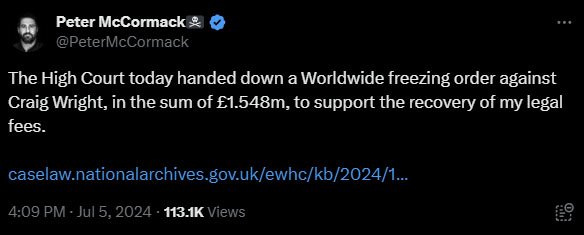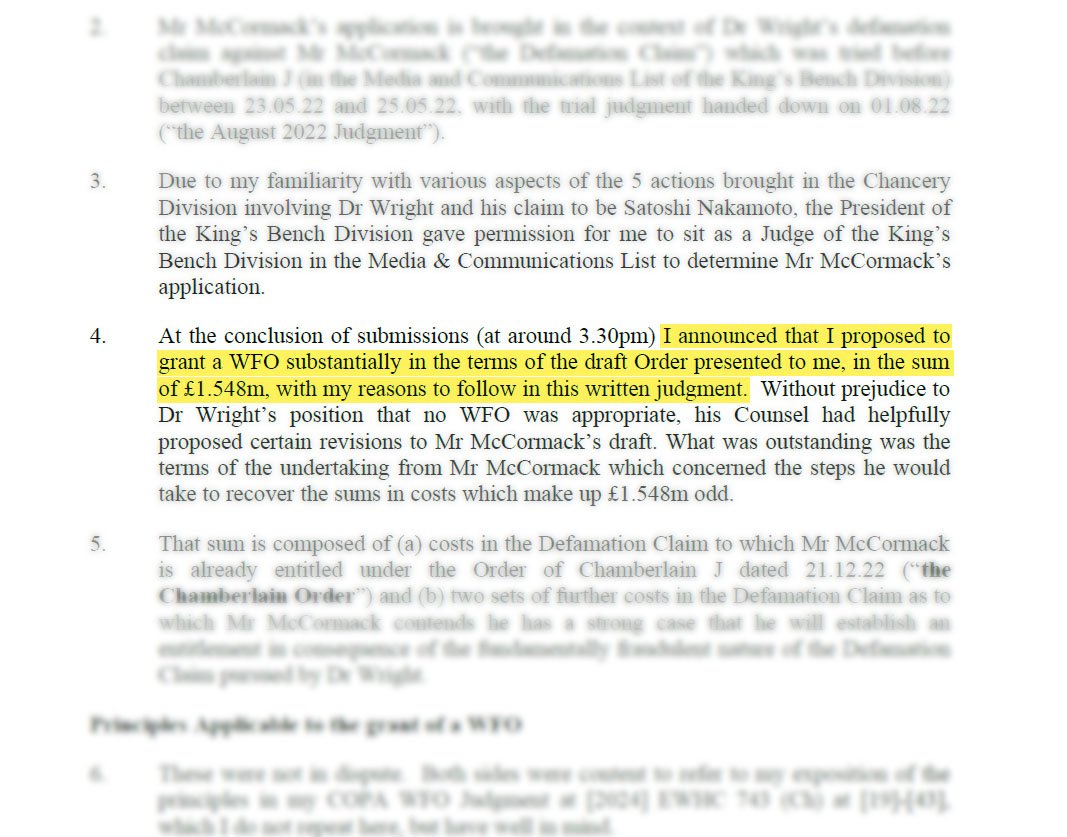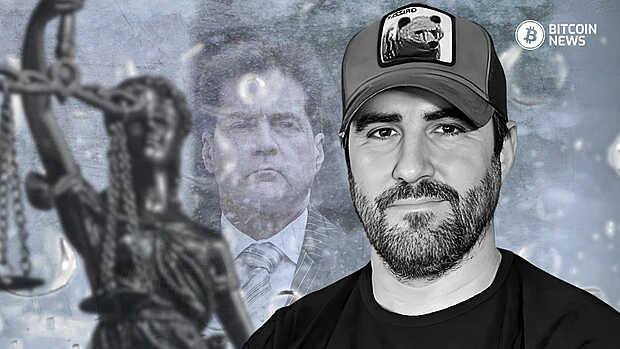The saga of Craig Wright and his contentious claim to be Satoshi Nakamoto, the enigmatic creator of Bitcoin has been captivating the public. This tale took another dramatic turn recently, as the UK High Court issued a Worldwide Freezing Order (WFO) against Wright.
This decisive action, championed by Justice Mellor, aims to prevent Wright from moving assets to avoid paying substantial legal fees incurred by Peter McCormack, a prominent Bitcoin podcaster and critic of Wright.

Craig Wright, an Australian computer scientist, has been a controversial figure in the Bitcoin community since he publicly claimed in 2016 to be Satoshi Nakamoto.
Nakamoto is the pseudonym used by the person or group of people who created Bitcoin, the world’s first and most well-known digital currency. Wright’s claim has been met with widespread skepticism and has led to numerous legal battles.
One of the most significant of these battles has been between Wright and Peter McCormack.
McCormack, known for his outspoken criticism of Wright, publicly accused him of fraudulently claiming to be Nakamoto. These accusations were made in several tweets and a YouTube video, leading Wright to sue McCormack for defamation in 2019.
The defamation case between Wright and McCormack has been a lengthy and complex legal struggle. Initially, Wright sought to clear his name and prove his claim to be Nakamoto by taking legal action against McCormack.
However, the case took an unexpected turn when the court found that Wright had presented deliberately false evidence. As a result, Wright was awarded only nominal damages of £1.
Justice Mellor, who presided over the case, noted that Wright’s conduct throughout the litigation was dishonest and that he had engaged in a “mendacious overall campaign” to lay false claim to Bitcoin assets “worth many billions”.
This judgment significantly undermined Wright’s credibility and his claim to be the creator of Bitcoin.

In a significant development, the UK High Court has now issued a Worldwide Freezing Order (WFO) against Craig Wright. This order, valued at £1.548 million ($1.9 million), is intended to prevent Wright from transferring assets to evade paying the legal costs owed to McCormack.
Justice Mellor granted this order in response to Wright’s history of defaulting on payment orders and concerns about the potential dissipation of his assets.
Justice Mellor stated:
“The defamation claim should never have been threatened, commenced or pursued, In these circumstances, our law would be in a sorry and sad state if a litigant in the position of Mr McCormack is not able to recover his costs of having to fight that type of litigation.”
The judge highlighted that the impact of a defamation lawsuit is significantly magnified when pursued by someone like Dr. Wright, who is willing to invest large amounts of money in litigation.
He ruled that McCormack, represented by the law firm Reynolds Porter Chamberlain, has a compelling case to recover £1.548 million in costs.
The WFO against Wright covers a substantial sum, including the costs already awarded to McCormack and additional expenses related to Wright’s dishonest behavior during the defamation proceedings.
This order is part of a broader pattern of legal actions involving Wright, who has been involved in multiple lawsuits asserting his claim to be Satoshi Nakamoto.
In another recent case, the Crypto Open Patent Alliance (COPA) successfully challenged Wright’s claim. The court found “overwhelming” evidence that Wright is not the creator of Bitcoin and had forged documents to support his claim.
Judge James Mellor, who also presided over this case, declared that “Dr. Wright is not the author of the Bitcoin white paper” and “Dr. Wright is not the person who adopted or operated under the pseudonym Satoshi Nakamoto in the period 2008 to 2011.”
Attorneys for COPA stated:
“[Wright] has invented an entire biographical history, producing one tranche after another of forged documents to support it.”
The legal battles surrounding Craig Wright have significant implications for the Bitcoin community. Wright’s claim to be Satoshi Nakamoto has been a point of contention for years, and the recent court rulings further discredit his assertion.
COPA, an industry group that includes prominent members such as Twitter founder Jack Dorsey’s payments firm Block, hailed the court’s decision as a victory for the entire open-source community.
“For over eight years, Dr. Wright and his financial backers have lied about his identity as Satoshi Nakamoto and used that lie to bully and intimidate developers in the bitcoin community,” a spokesperson for COPA stated.
This ruling is seen as a significant step in protecting developers and upholding the integrity of the Bitcoin ecosystem.
While the court’s rulings have dealt a significant blow to Craig Wright’s claim, the true identity of Satoshi Nakamoto remains one of the biggest enigmas in the tech world.
The 2008 Bitcoin white paper, published under the Nakamoto pseudonym, is considered the foundational text of the cryptographic digital currencies. Despite numerous investigations and speculations, the real creator of Bitcoin has never been definitively identified.
Wright’s claim to be Nakamoto has been a central part of his legal strategy, but the courts have consistently found his evidence to be lacking.
As the legal proceedings continue, the implications of these rulings will likely resonate throughout the industry. For now, the court’s decisions provide a measure of justice for Peter McCormack and others who have been caught in the crossfire of Wright’s contentious claims.










